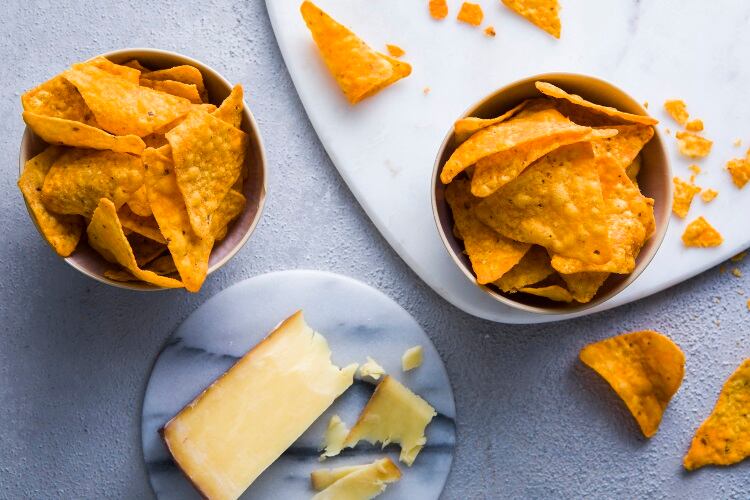Founded on 25 February 1947, the Bicester-headquartered company is part of the Bakels Group Worldwide, which produces over 2,000 bakery products and employs almost 3,000 people across the globe.
“We are thrilled to be celebrating 75 years of success. It’s hard to believe that food rationing and the ‘National Loaf’ were in place when we first set up British Bakels in 1947,” said Paul Morrow, chairman of British Bakels.
“Since then, there’s been a revolution in both technology and ingredients and today’s consumers enjoy a vast array of different breads and baked goods.”
Aligned with its philosophy to think ahead, Bakels collaborated with food futurist Lydon Gee to produce Baking Past, Present and Future, which takes a deep dive into the key trends that are expected to impact the future of the baking industry.
Novel ingredients, sustainability, technology, consumer behaviours and ethics are all forecast to influence the baking landscape.
Shroom boom and other novel ingredients
Nutrition as therapy will become a thing: think prescription loaves, bespoke functional cakes and fortified everything.
According to the report, new, unique ingredients will become everyday foods, with huge growth forecast expected for algae and seaweed, and insets, thanks to their impressive nutritional profiles and versatilities.
A ’shroom boom’ is also expected, especially functional psychoactive mushrooms – for their mental health benefits, their ability to form an edible framework for flavour, and for their growing role in edible packaging.
Genetically edited and food waste
The need to combat climate change is no longer just table talk, with scientists and researchers jumping on board to develop sustainable alternatives.
Genetic editing will become more important, such as grains to survive on very little water and hybrid plants that are easier to grow and turn into food.
The use of 3D printing will grow, particularly as the demand for customised products, personalised nutrition, automated cooking, reduction in waste and increasing product flexibility (think cuboid fougasse) increases.
The report also noted that sharing apps such as Olio or Too Good to Go will expand and regulation may make food waste illegal in the food production and retail sectors.
AI, robots and real time
Technological developments will continue to lead change in the baking sector.
According to the report, artificial intelligence (AI) will play an integral role in industrial baking, from the increasing adoption of robots that can create thousands of new flavours, ingredients and aromas combinations – to smart tech to analyse real time sales, data and buying habits.
Food/TV tech becomes a multisensory experience, from point of sale to hoe entertainment and online shopping.
Ethical snacking
Where consumer behaviour is concerned, ethics will become even more important. In fact, a survey conducted by British Bakels for the report found that 75% of consumers are already focused of the environmental impact of the products they buy – which is increasingly driving their purchasing decision.
This statistic is expected to ramp up, particularly among Gen-Zs.
This is placing pressure on producers to adopt self-sufficient green energy (solar/hydro/wind powered) production units, with new sources like hydrogen expected to come online in the 2030s.
Consumers are also expected to increasingly place importance on criteria like gut health, protein, veganism and plant-based, delivery on demand and premiumisation.
At the forefront of everything we do
“Over the next decade, sustainability will be at the forefront of everything we do,” said Morrow.
“Responsible sourcing, reducing food waste, health and plant-based solutions form integral parts of our strategy for the future, aligning with increasing customer expectation. This dynamic ethos is very entrepreneurial in that we are constantly finding new ways to support our customers.
Innovation and NPD are at the heart of British Bakels. A great example is the Multiseed Bread Concentrate launched in 2004 – still the company’s biggest seller – contributing to the production of 276 million loaves of bread each year.
Other standout products include Hercules baking powder, Ovelett sponge emulsifier and Actiwhite meringue mix in the 1950s; and the just-add-water mix for coconut macaroons and first batch of Millionnaires Caramel in the 70s.
But its product successes over the past 75 years have been vast – creating an extensive portfolio for both retail and food service, which find their way into over 2.36 billion burger buns each year, as well as 129 million Danish pastries and 115 million doughnuts.
“While trends and ingredients will certainly evolve in the future, the core business model will not change,” added Morrow.
“Bakels develop products to meet consumer and customer needs, manufacture them safely and efficiently, and offer technical application support to foster long term sustainable relationships. That’s what British Bakels have done for the past 75 years and will continue to do for the next.”





